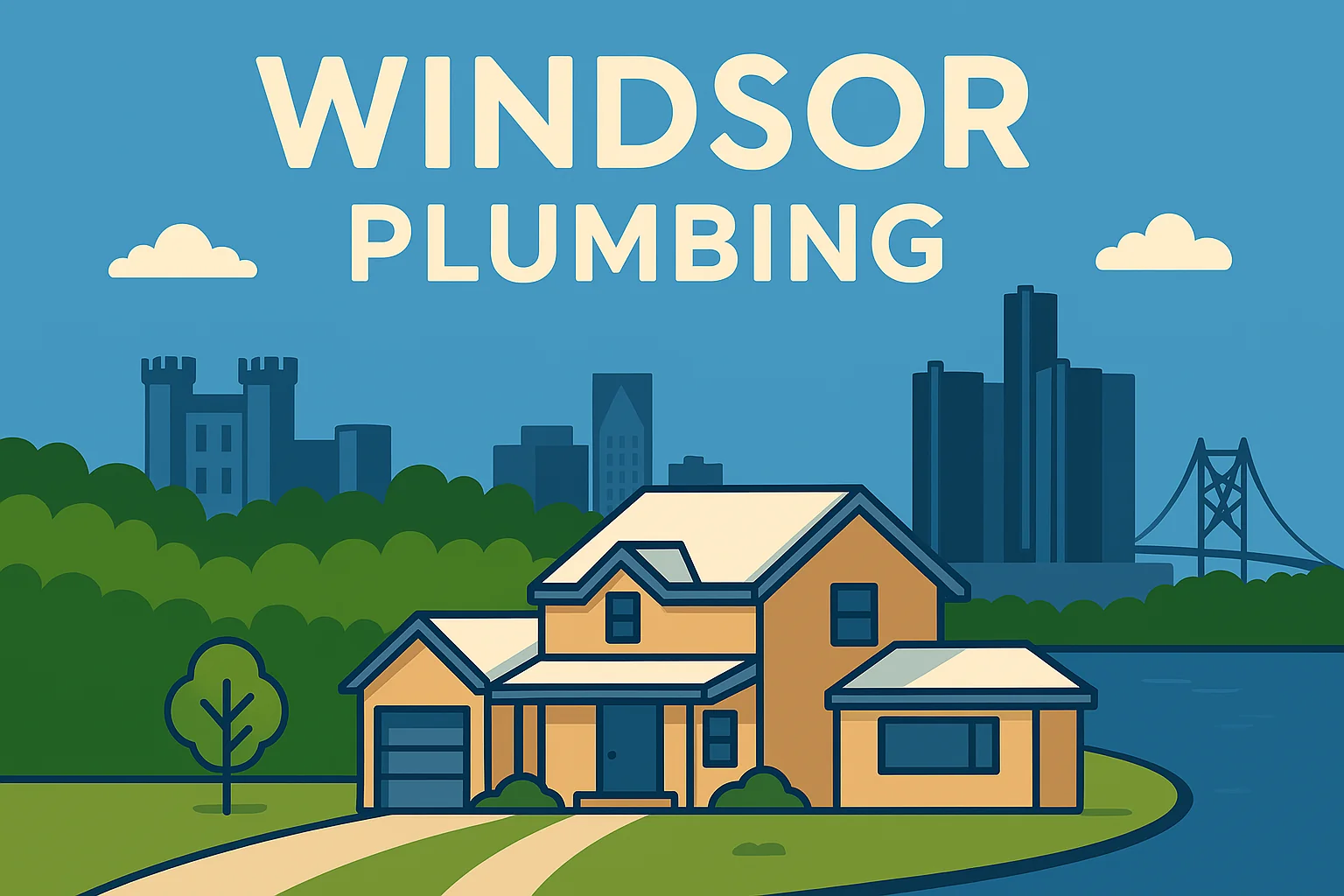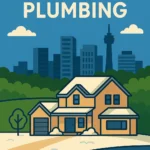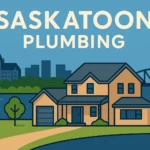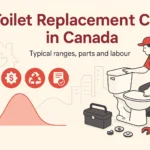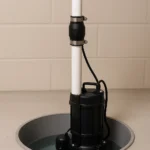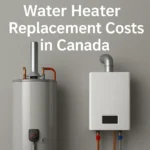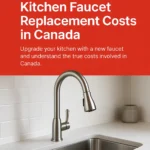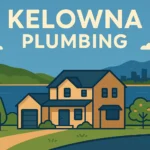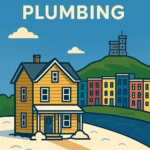Introduction
Windsor, a border city of more than 230,000 residents on the Detroit River, blends historic neighbourhoods with new subdivisions. Plumbing needs vary across these areas, from older homes with galvanized or lead-era piping to modern builds meeting updated standards. With moderately hard water and a history of flooding during intense storms, regular plumbing maintenance is a must for Windsor homeowners.
Water Source, Quality & Hardness
- Source: Windsor’s drinking water is supplied by the Windsor Utilities Commission (WUC), drawing from Lake Erie and treated at local plants operated by ENWIN. (ENWIN – Water FAQs)
- Quality: Windsor’s water meets all Ontario requirements under the Safe Drinking Water Act. Annual reports confirm compliance with provincial standards.
- Hardness: Windsor water is moderately hard, averaging 5.6–7.0 gpg (~95–120 mg/L CaCO₃) (Aquatell).
What this means for homeowners:
- Scale deposits form on taps, dishwashers, and kettles.
- Sediment builds up in hot water tanks, reducing efficiency.
- Many residents install water softeners to extend appliance lifespan.
Housing Stock & Plumbing Systems
- Pre-1970 homes (Walkerville, Sandwich, core areas): Likely to have older copper or galvanized steel pipes; some may still have lead service lines or solder.
- 1970s–1990s subdivisions (South Windsor, Forest Glade): Mix of copper supply lines and ABS drain piping.
- 2000s–present (East Riverside, South Windsor new builds): Modern PEX or copper systems, sump pumps, and backwater valves installed as code requirements.
- Rural outskirts (Essex County properties): Some use private wells and septic systems rather than city water and sewer.
Common Plumbing Issues in Windsor
- Hard water scaling — mineral buildup on fixtures and inside water heaters.
- Flooding & sewer backups — Windsor has experienced repeated flood events in 2016 and 2017 when heavy storms overwhelmed sewer systems (City of Windsor).
- Tree root intrusion — older clay sewer laterals are vulnerable to blockages.
- Frozen pipes — exposed plumbing can freeze during cold winters.
- Aging plumbing materials — galvanized steel, old copper, or lead-era components may corrode and restrict water flow.
Seasonal Considerations
- Winter: Risk of frozen or burst pipes in uninsulated basements and crawl spaces.
- Spring: Heavy rain and snowmelt increase flood risk; sump pumps must be maintained.
- Summer: Severe thunderstorms may overwhelm Windsor’s sewer network.
- Fall: Rising rainfall and clogged eavestroughs contribute to sewer backup risks.
Plumbing Costs in Windsor
Most Windsor plumbers charge a minimum service call of about $300 before tax, which covers inspection or the first hour.
Typical Plumbing Prices in Windsor
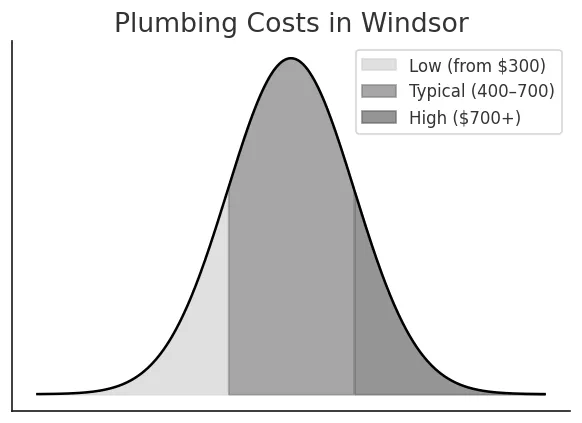
| Service | Low | Typical | High |
|---|---|---|---|
| Drain unclogging | $300 | $400 | $700+ |
| Faucet replacement | $300 | $450 | $850+ |
| Hot water tank replacement | $1,400 | $2,000 | $3,500+ |
| Emergency after-hours call | $450 | $700 | $1,200+ |
⚠️ Disclaimer: Prices are estimates only. Actual costs vary depending on contractor, permits, materials, and job complexity.
Local Permits & Regulations
Plumbing work in Windsor must comply with the Ontario Building Code and requires permits for most installations or alterations.
- City of Windsor – Building Permits:Building Permits Department
- Phone: 519-255-6267
- Email: buildingdept@citywindsor.ca
- Permit Requirements: New plumbing systems, drain relocations, and major renovations require permits.
- Regional Standards: ENWIN/WUC sets approved material guidelines for new water mains and service lines (ENWIN Guidelines).
Minor like-for-like repairs (e.g., replacing a faucet in the same location) usually do not require a permit.
Case Study: Basement Flooding in South Windsor
In 2023, a South Windsor homeowner experienced basement flooding after an intense summer storm. City sewers were overwhelmed, and a backwater valve was not installed. A plumber was called to perform a camera inspection, which showed stormwater and sewer backup into the lateral.
- Solution: Backwater valve installation, sump pump upgrade, and exterior grading improvements.
- Cost: Approximately $6,500, including excavation and permits.
- Result: Protection against future backups during heavy storms.
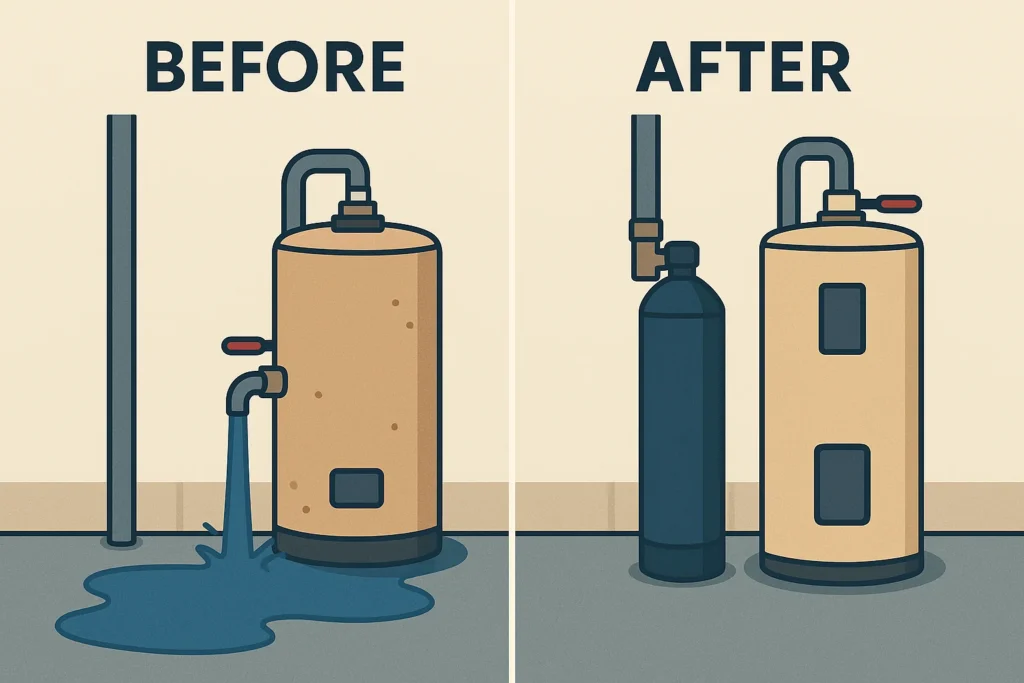
FAQs
Is Windsor water hard?
Yes, Windsor water is moderately hard at 5.6–7.0 gpg.
Do I need a water softener in Windsor?
Recommended to reduce scaling and extend the life of plumbing systems.
What plumbing risks are most common in Windsor?
Basement flooding, sewer backups, and hard water scaling.
How much does a plumber cost in Windsor?
Expect a $300 minimum service call, with typical jobs ranging $400–$700.
Who issues plumbing permits in Windsor?
The City of Windsor Building Department.
Tips for Windsor Homeowners
- Install a water softener to manage scaling.
- Flush hot water tanks annually to remove sediment.
- Test sump pumps each spring.
- Consider a backwater valve to reduce flood risk.
- Insulate exposed pipes to prevent winter freezing.
Conclusion
Windsor homeowners face unique plumbing challenges, from moderate hard water to serious flood risks during storms. With proper maintenance, timely upgrades, and adherence to permit requirements, you can avoid costly emergencies and protect your home.
👉 Book a licensed plumber in Windsor today at unclogit.com or call 604-496-1661.

